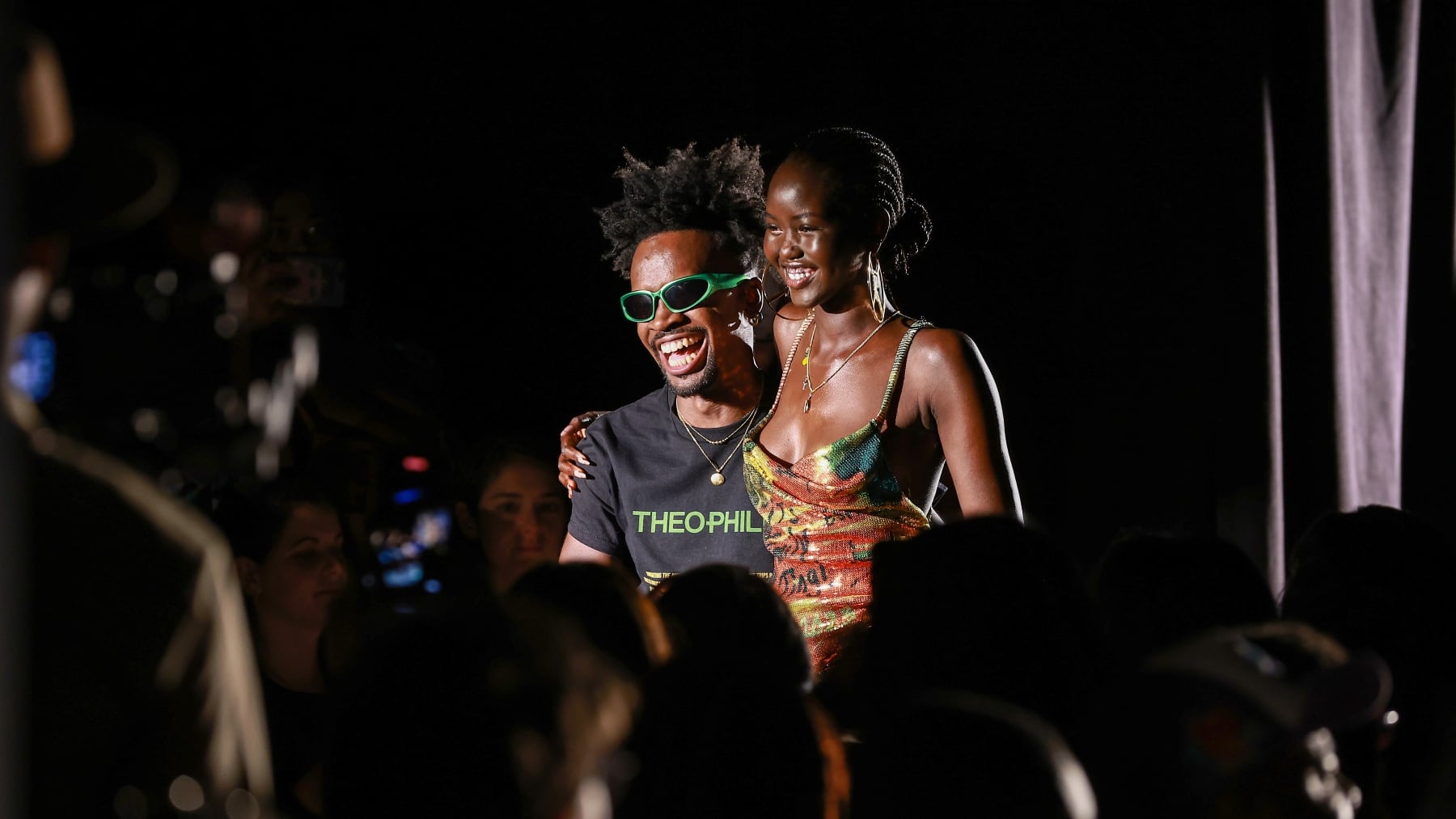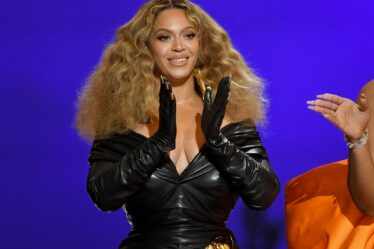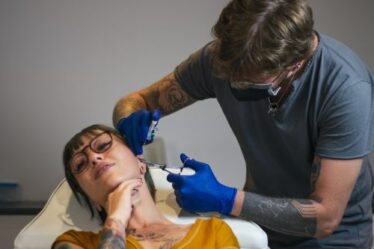
The last time Theophilio’s Edvin Thompson showed at New York Fashion Week, in September 2022, he was a poster child for the plight of America’s indie designers: plenty of buzz, not much business.
Thompson had been named American Emerging Designer by the Council of Fashion Designers of America in 2021, and was widely seen as one of the most promising up-and-coming labels on the schedule. But his brand was also operating in the red. Without the CFDA prize money, he might not have been able to show, Thompson said.
Once the grants ran out, so did Thompson’s runway aspirations, at least temporarily. He hasn’t shown since that season, aside from a small cruise collection in Los Angeles last year. A planned return to New York in February was cancelled last minute after a sponsor pulled out.
Now back on the schedule with a show on September 9 at the Freehand Hotel, Thompson describes his time away from the fashion week spotlight as a blessing in disguise. Over the last year, he’s focused on building the infrastructure of his business, including opening a new studio in the Financial District’s trendy WSA Building. He’s also tackled less glamorous aspects of running a fashion brand, hiring his first accountant three months ago and setting an annual operating strategy for the first time.
“This has helped with the assessment of scaling and the assessment of doing a show again,” Thompson told The Business of Fashion. “Like, ‘Okay, it’s possible for us to do a show again because this is where the funds are coming from now and we understand it.’ We have an aerial view of it.”
Playing the long game means making the right business decisions: build contingencies for major expenditures, negotiate better terms with vendors in advance, and occasionally abandon a costly line item — such as a fashion show — if it means the business can thrive elsewhere. Looking ahead, Theophilio likely won’t show every season, Thompson said.
For the first time, the company is breaking even, he added, with wholesale and work with celebrity clients driving sales.
Thompson said he hopes the return to the runway will generate more exposure to buyers, journalists and Hollywood stylists. He and his team are also planning a dinner during fashion week. Even so, he said he worries the move feels like it might still be “a little too soon.”
“I have a pretty small team, so it’s definitely difficult,” he said. “But I’m looking around and I’m like, ‘Yes, I’ve arrived,’ so why not continue even with these challenges?”
Participating in New York Fashion Week is a huge undertaking, with even small labels in for months of preparation and a $125,000-and-up price tag.
But the real work will be meeting the flood of demand that comes out of a successful show, according to Thompson.
That means ramping up Theophilio’s supply chain. Right now, the brand lacks production capacity to sign on potential new retail partners. Its biggest stockists are Ssense and Bergdorf Goodman. Samples are also in short supply. Lately, the brand has struggled to keep up with the volume of media requests and celebrity loans for its colourful dresses and sleek leather separates.
“As often as we say yes to loans and press pulls, we often have to say no because we don’t have the capacity,” Thompson said. “If we only have three samples [of something], then yeah that’d be a challenge.”
A much-anticipated handbag rollout is also on hold as Theophilio irons out the production schedule with two new accessories suppliers. Thompson told The Wall Street Journal in March that leather goods will roll out later this year. Now, that timeline is tentative.
For his apparel supply chain, the potential solution is to find new manufacturers in China. Currently, Theophilio produces all of its ready-to-wear in New York City, where costs can be prohibitive. A $50,000 wholesale order, for instance, would incur a 50 percent upfront cost. Thompson is exploring a relationship with a factory in China and potentially working with a factor to help finance upcoming orders.
“We’ve got marketing in the bag,” he said. “What’s very important for me is to have the production side of things aligned.”
Theophilio’s spring/summer 2025 runway collection — dubbed “Shaunie,” Thompson’s childhood nickname — will be a “celebration of the grander self,” Thompson said, with the backdrop of his native Jamaica. Sandals, a Jamaica-based operator of resorts in the Caribbean, will be a sponsor.
“It’s very sexy and very moody,” he added, with sequins, leathers, headpieces and his signature graffiti print.
Although Theophilio might not show every season from now on, Thompson said, having a presence during New York Fashion Week is important to him — if only for the purpose of showing up as a designer of colour at a time when large fashion companies are pulling back from their investments in diversity and inclusion.
“Representation is so important and I don’t take that for granted,” he said. “I think it’s so important for people like myself to be seen often, important for us to fill the room and not just create a very small space in the corner.”



